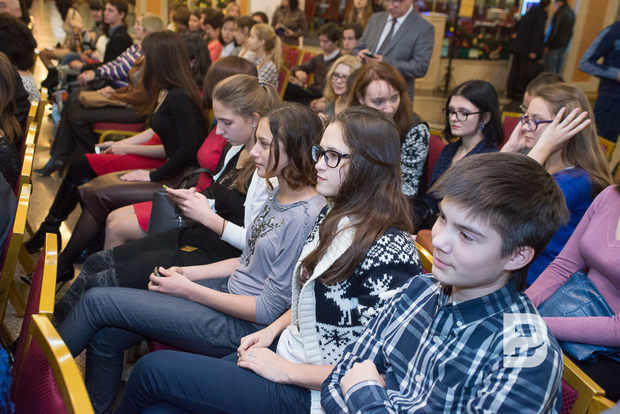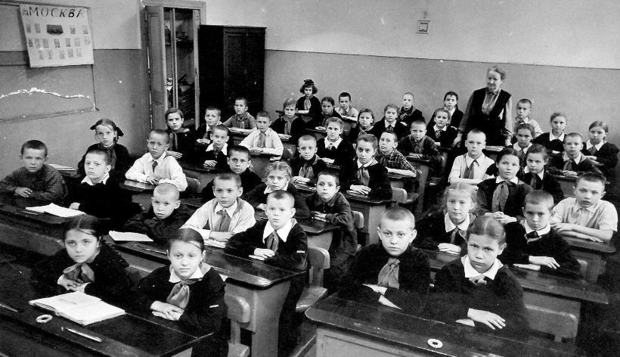Patriotism doesn’t mean we need to hide unpleasant episodes in the 20-century history
Teacher Andrey Roschektaev about attitude of modern schoolkids to history, political teaching and indigo children
Andrey Roschektaev is one of the most famous school teachers of Kazan. What is more, he is a historian, writer and guide in Kazan Eparchy. In an interview to Realnoe Vremya's correspondent, he told how history can attract schoolkids, political manipulations with historical events and facts and how modern kids differ from their mums and dads at their age.
''Those whom we talk about were really live people''
To start with, I will ask you as History teacher the following question. How much has the interest in your subject risen nowadays?
I have to say our school is especial: they are musicians, and general subjects are not main for them, of course. But I would say that according to my observations, about 15% of pupils are interested in history, the others not much. Unfortunately, modern schoolkids read little. It is not easy to know history, literature and other humanities without reading books.
Nevertheless, you are told to be a person who managed to attract to the subject.
The 15% are just my subjective observations. Of course, there are children who read something – it is interesting for them. In addition, somebody is interested in the 20th century more because last century's events affects our life more. Somebody, on the contrary, likes romantic times of the Middle Ages, especially boys. For instance, fifth-grade kids were keen on making weapons from paper and did it on their initiative. Boys, as usual, are interested in mediaeval wars, knights, etc. It was very pleasant that after a lesson about Jeanne d'Arc, many pupils were interested in this heroine and even looked for additional information on the Net. It is good in general to deal with nonindifferent guys.
How do you manage to interest schoolchildren in history?
The thing is that I was keen on history when I was a kid. I manage to see myself at that age – what would interest me? I try revealing history as something live to the max, not as uninteresting and bookish. Because those whom we talk about were really live people. I tell about events in details, so that kids will perceive it as part of real life, not uninteresting and bookish.

''I have to say our school is especial: they are musicians, and general subjects are not major for them, of course. But I would say that according to my observations, about 15% of pupils are interested in history.'' Photo: Maksim Platonov
''Unpleasant things should not be hidden''
As far as I am concerned, you teach the subject from a patriotic perspective. Do you agree that now history is used to manipulate kid's consciousness?
It depends. Unfortunately, a history teacher has to face something similar. History has always been politicised: probably differently during the Soviet era and today.
We have so many books of different kinds, there is a great deal of history courses. Do they need to be licenced or even banned?
I am against banning something except frankly extremist literature. I think we don't have extremist books at all or we have them a bit, though I am not a book specialist. To be honest, I think the books we use are quite a good quality. I am not a specialist to check what books need to be banned. I only think that it is good that there are many books, it is always good when there is a choice.
I know first-hand having studied at Russian school in the 90s that, initially, Soviet books were used, then a bit liberal books appeared. People also talk about a kind of Stalinist, Khrushchev history. And today experts already claim about the Putin history. How not to go to political extremes?
Real history doesn't need to depend on a political situation. Personally, I think that history must be as little politicised as possible. We need to tell what we have including unpleasant things, they should not be hidden. Patriotism doesn't mean we need to hide unpleasant episodes in the 20-century history, some tough things. Patriotism needs to be honest.
The federal media writes about cases when schoolkids state about their political positions. For instance, in Bryansk Oblast, a pupil created a page of Navalny, Samara schoolchildren refused to give money to tidy up their classroom…
I personally don't know such examples.
Some media already state about a school revolution…
I did not see it. I think it is an exaggeration.

''In the Soviet era, history was very distorted if it could be called history – a class and economic approach. And I am hostile to Soviet teaching.'' Photo: livemaster.ru
''I am hostile to Soviet teaching''
Are modern kids different from past generations, your childhood?
Unfortunately, all kids have a phone dependence – it is a serious problem. On the one hand, I studied at school in the 80s and a bit envy modern kids – they have more information sources. We did not have it. On the one hand, it is good. On the other hand, they don't understand the range of choices they have.
What do you think about the existence of indigo children?
The thing is that I believe in God, I am an Orthodox Christian. And the Orthodox church is against this theory. Kids with especial skills certainly exist. I don't know whether we can call them so. From a perspective of a religious person, I am sceptical about the definition of indigo children.
Do you feel any grown interest of the society in its past?
It is a natural process when some part of active people are interested in their past. Indeed, this year is a jubilee year concerning the 1917 revolution events – it is one of the life-changing events of our history. This is why they are interested.
Were people in the Soviet era less interested in history?
In the Soviet era, history was very distorted if it could be called history – a social and economic approach. And I am hostile to Soviet teaching.